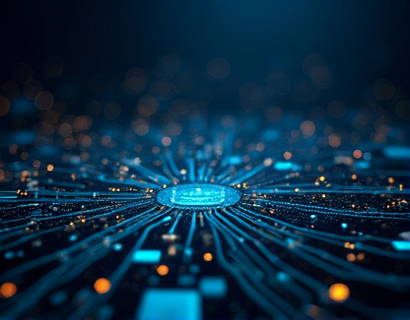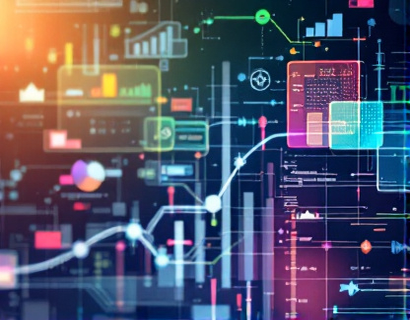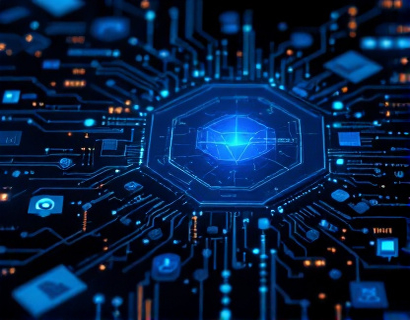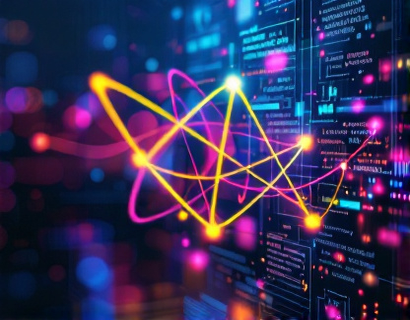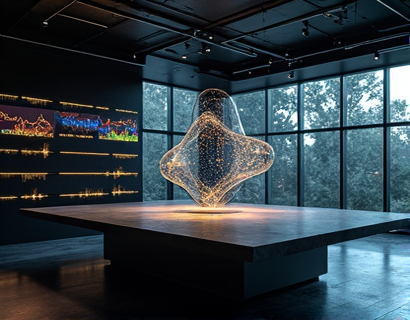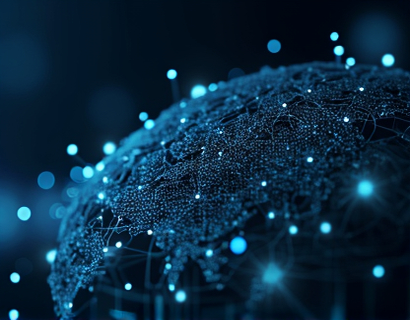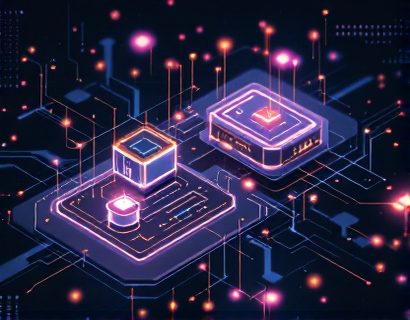Crypto AI Synergy: Elevating Digital Engagement with Advanced Tech Solutions in the Crypto Landscape
The intersection of artificial intelligence and cryptocurrency has given rise to a new era of digital engagement, transforming how users interact with blockchain technologies and digital assets. This synergy, often referred to as Crypto AI, leverages the strengths of both domains to create innovative solutions that enhance user experience, security, and efficiency. In this article, we delve into the transformative impact of merging AI with cryptocurrency, exploring the latest advancements and their implications for tech enthusiasts and early adopters.
The crypto landscape is inherently complex, characterized by decentralized networks, smart contracts, and a myriad of digital assets. Traditional user interfaces and experiences often fall short in addressing the intricacies and nuances of this environment. Here, AI plays a pivotal role by providing intelligent, adaptive, and personalized solutions. By integrating AI into crypto platforms, developers can create more intuitive and user-friendly interfaces, automate complex processes, and offer insights that were previously unattainable.
One of the primary ways AI enhances digital engagement in the crypto space is through predictive analytics. AI algorithms can analyze vast amounts of data to forecast market trends, price movements, and user behavior. This capability allows users to make more informed decisions, optimizing their investment strategies and minimizing risks. For instance, AI-driven trading bots can execute trades based on real-time market data and predefined criteria, providing a level of automation that human traders might struggle to match.
Personalization is another key area where AI shines in the crypto domain. Users have diverse needs and preferences, and AI can tailor experiences to individual users by analyzing their interactions and behavior. This personalized approach can range from customized dashboards that highlight relevant information to tailored recommendations for new crypto assets or services. By understanding user patterns and preferences, AI can create a more engaging and relevant experience, fostering user loyalty and satisfaction.
Security is a paramount concern in the crypto world, and AI offers robust solutions to enhance it. Machine learning algorithms can detect and mitigate fraudulent activities, such as phishing attacks and unauthorized transactions, by identifying unusual patterns and anomalies in real-time. AI-powered security systems can adapt to new threats, providing a dynamic and proactive defense mechanism. This not only protects user assets but also builds trust in crypto platforms, encouraging broader adoption.
Smart contracts, a cornerstone of blockchain technology, can be significantly improved with AI. AI can help in the creation, execution, and monitoring of smart contracts by ensuring they operate as intended and detecting potential vulnerabilities. AI-driven tools can analyze contract code, identify risks, and suggest optimizations, reducing the likelihood of errors and enhancing the overall reliability of smart contracts. This synergy between AI and smart contracts paves the way for more complex and sophisticated decentralized applications (dApps).
The development of decentralized finance (DeFi) platforms is another area where Crypto AI is making a significant impact. DeFi aims to create financial systems that are open, transparent, and accessible to everyone. AI can optimize DeFi protocols by providing real-time risk assessments, automating lending and borrowing processes, and enhancing liquidity management. AI-driven oracles can fetch accurate off-chain data, ensuring that on-chain smart contracts have the most up-to-date information, which is crucial for the functioning of DeFi applications.
User onboarding and education are critical for the growth of the crypto ecosystem. AI can streamline the onboarding process by guiding new users through complex concepts and procedures with interactive tutorials and chatbots. Natural language processing (NLP) enables AI to understand and respond to user queries in a human-like manner, providing instant support and reducing the learning curve. This not only enhances user experience but also lowers the barrier to entry for newcomers, fostering a more inclusive community.
In the realm of content creation and distribution, AI-powered tools can generate insightful articles, reports, and analyses based on real-time data. These tools can help crypto projects and platforms share valuable information with their audience, keeping them informed about market trends, project updates, and industry news. AI can also curate and recommend content tailored to individual user interests, ensuring that they receive the most relevant and engaging information.
The integration of AI with cryptocurrency extends beyond backend processes and user interfaces. It also plays a crucial role in the governance and decision-making of decentralized organizations. AI can analyze community feedback, voting patterns, and other relevant data to provide insights that inform governance decisions. This data-driven approach can lead to more transparent and effective governance, aligning the interests of stakeholders and enhancing the overall health of decentralized projects.
As the crypto AI ecosystem continues to evolve, we can expect to see even more innovative applications. One promising area is the development of AI-driven virtual assistants specifically designed for the crypto community. These assistants can manage wallets, track investments, provide market alerts, and offer personalized advice, all through natural language interactions. Such tools can significantly enhance the daily lives of crypto users, making managing digital assets more convenient and efficient.
Another exciting development is the use of AI in enhancing the interoperability of different blockchain platforms. AI can facilitate seamless communication and data exchange between disparate systems, enabling a more cohesive and integrated crypto ecosystem. This interoperability is essential for the widespread adoption of blockchain technology, as it allows for the creation of more complex and versatile applications that can leverage the strengths of multiple platforms.
The future of Crypto AI is also tied to the advancement of quantum computing. While quantum computers have the potential to break current cryptographic algorithms, they also offer new opportunities for AI in the crypto space. AI algorithms running on quantum computers could solve complex problems much faster than traditional computers, leading to breakthroughs in areas such as cryptography, optimization, and machine learning. This synergy could unlock new levels of security and efficiency in crypto systems.
As we look ahead, the convergence of AI and cryptocurrency is poised to drive significant changes in the digital landscape. For tech enthusiasts and early adopters, this synergy represents a fertile ground for innovation and exploration. By embracing these advancements, individuals can stay at the forefront of technological progress, leveraging the power of AI to enhance their crypto experiences and contribute to the growth of the decentralized ecosystem.
In conclusion, the integration of AI with cryptocurrency is revolutionizing digital engagement, offering a range of benefits from enhanced security and personalized experiences to optimized DeFi protocols and streamlined user onboarding. As the technology continues to evolve, the potential for further innovations is vast, promising a future where the crypto landscape is more intuitive, secure, and user-friendly than ever before.








